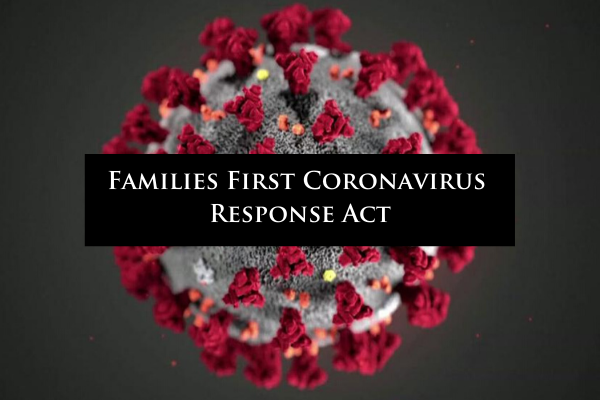Disclaimer: The Congressional response to the COVID-19 coronavirus is continuing to develop and change as new challenges emerge. This is a summary of only a portion of the law that was passed on March 18, 2020. Every situation is different. Please consult with counsel to determine how these changes may impact you.
President Trump signed into effect the Families First Coronavirus Response Act on March 18, 2020. This Act will be effective from April 2 until December 31, 2020. The Act provides funding for several programs, several of which apply to employers and their employees. In particular, the Act contains a temporary expansion of the Family and Medical Leave Act (FMLA), adds an Emergency Paid Sick Leave, and establishes a tax credit for employers who are required to pay their employees for leave under this Act.
Emergency Family and Medical Leave Expansion Act
As the name suggests, the FMLA has been temporarily expanded. The keys expansions are explained below:
- An employee is eligible for FMLA leave after being employed by the employer for at least 30 days rather than the 12 months previously required. An eligible employee may take up to 12 weeks of job-protected leave. There are some specific exceptions to this requirement such as for health care providers and certain employers with fewer than 25 employees.
- Previously, only employers with more than 50 employees were required to provide FMLA leave. Now any employer with fewer than 500 employees must provide FMLA leave. The Act does provide an exemption for employers with fewer than 50 employees if providing the FMLA leave would jeopardize the viability of the business.
- The Act adds coverage for leave due to a “qualifying need related to a public health emergency.” A “qualifying need related to a public health emergency” means an employee is unable to work or telework because he or she must care for a child under the age of 18 if the child’s school or place of care is closed or unavailable due to a public health emergency.
- The Act has a provision allowing for paid leave after the first 10 days.
Emergency Paid Sick Leave Act
This act requires all employers, with some specified exceptions, with fewer than 500 employees to provide paid sick leave when an employee is unable to work or telework due to the following reasons:
- The employee is subject to a quarantine or isolation order related to COVID-19.
- The employee has been advised by a health care provider to self-quarantine due to concerns related to COVID-19.
- The employee has symptoms of COVID-19 and is seeking a medical diagnosis.
- The employee is caring for an individual subject to a quarantine or isolation order or advised by a health care provider to self-quarantine due to concerns related to COVID-19.
- The employee is caring for a child because the child’s school or place of care is closed or unavailable due to COVID-19 precautions.
- The employee is experiencing any other substantially similar condition specified by the Secretary of Health and Human Services in consultation with the Secretary of the Treasury and the Secretary of Labor.
An employee is eligible for paid sick leave regardless of how long he or she has been employed with the employer. Additionally, an employer cannot require an employee to use other paid leave before using the emergency paid sick leave.
Employers are required to post notice of the requirements of the Emergency Paid Sick Leave Act in a conspicuous place. The details what must be included in this notice are expected to be released in the next several days.
Employer Tax Credits for Paid Sick and Paid Family and Medical Leave
The Act provides employers a refundable tax credit equal for the wages paid in compliance with the Emergency Paid Sick Leave Act and the Emergency Family and Medical Leave Expansion Act.
One of our attorneys, Lisa K. Cagle, wrote this article. Please reach out to her or our firm if you have any questions regarding this act. We want to be able to help answer any of your questions.


